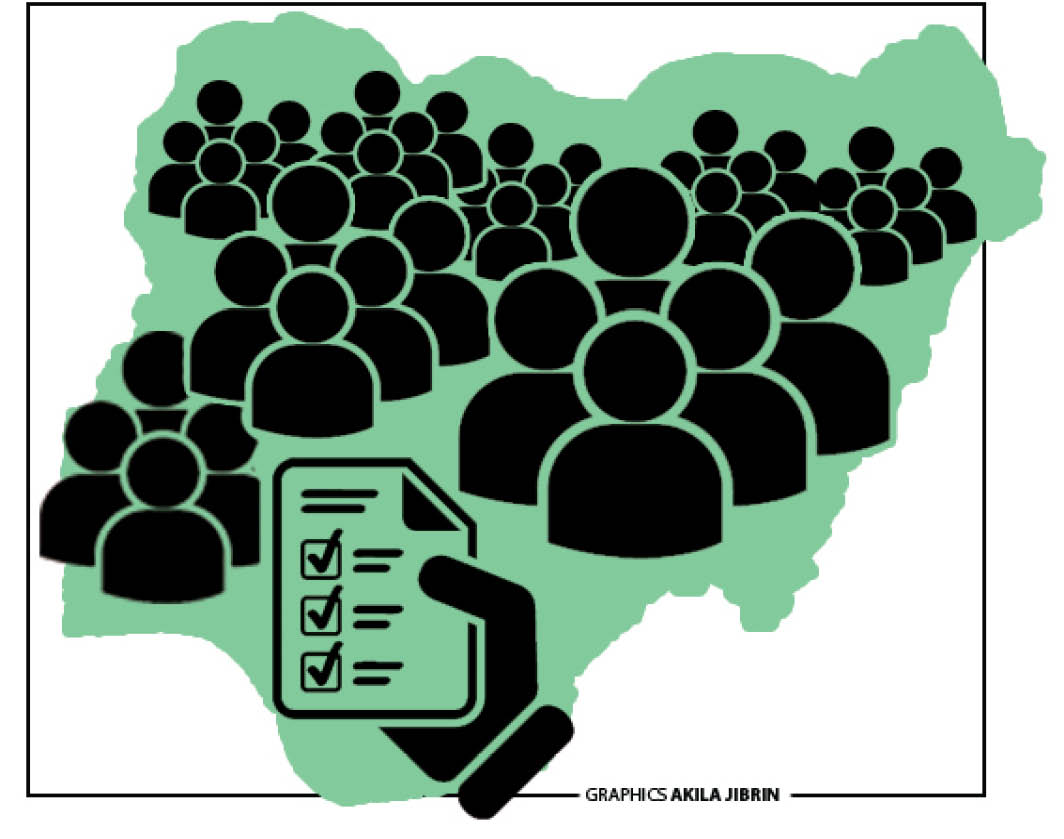Let us ensure credible census
Nigeria has a long history of census taking spanning over a century. The importance of census cannot be overestimated. A population census is at the centre of every planning activity, and no meaningful development activity can be conducted without taking into account population data. It helps not only to estimate the changes in the population […]

census
Nigeria has a long history of census taking spanning over a century.
The importance of census cannot be overestimated. A population census is at the centre of every planning activity, and no meaningful development activity can be conducted without taking into account population data.
It helps not only to estimate the changes in the population in a country at a specific time, but also evaluates other crucial changes in the country’s demographics.
Ideally, a census should be conducted every 10 years. This period allows government to capture the changes in structure and movement of the population correctly.
Nigeria is four years behind its census. The population and houses census ought have been conducted in 2016, one year after President Muhammadu Buhari assumed office. However, the new government could not conduct the census due to the economic recession in 2017. The exercise is capital-extensive.
Another attempt to conduct the exercise in 2020 was hit by COVID-19. The first phase of Census 2023 – the trial house listing and house numbering – took off officially in selected LGAs of the country on Wednesday.
Though the full exercise is scheduled for April, 2023, two months after the conduct of the general elections, Nigerians pray that NPC will conduct a hitch-free and acceptable census. The country needs to depart from guessing or dishing out mere figures as the population of the country. With the population explosion globally, Nigeria needs to have accurate data of births and deaths for development.
Ibrahim Mustapha, Pambegua, Kaduna State
